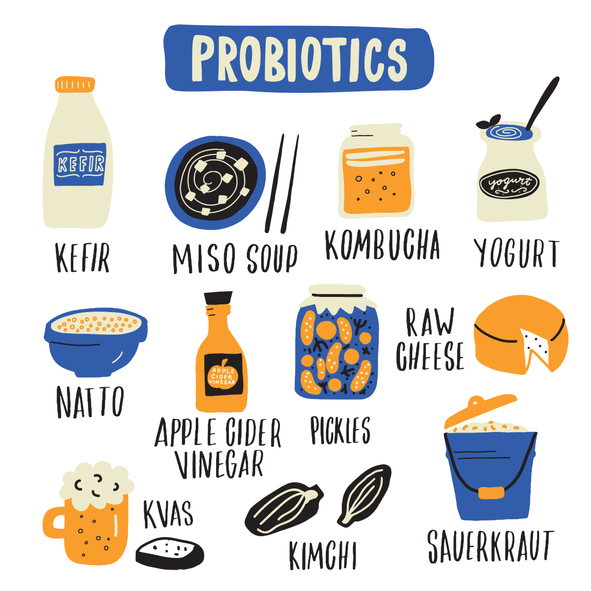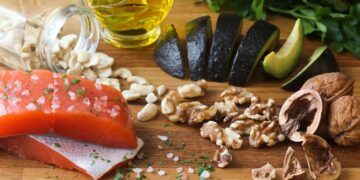Get your winter nutrition on track by following a few simple guidelines and Eat Healthy This Winter
With the lesser bounty of fresh local fruit and vegetables, and the cold weather making it harder for many people to want to get outdoors and active (plus it’s also very tempting to curl up on the couch with comfort foods high in salt and sugar), keeping up a healthy routine requires a bit more effort compared to the warmer months. With the common bugs that go around in the winter along with the fewer daylight hours, to stay well, it’d be wise to adjust your diet and habits to ensure you’re getting all of the vitamins and minerals you need.
Eat Healthy This Winter, Add Vitamin D

Sunshine is more scarce in the winter months, and with it being a natural source of vitamin D, making sure you’re getting enough D in your diet becomes a priority. Spend some time outdoors when you can–take a walk during your lunch, for example, since it’ll be dark by the time you’re done work for the day–and up the vitamin D-rich foods you’re eating. Enjoy fatty fish and seafood (such as salmon, oysters, shrimp and sardines) as your source of protein, for example, and include mushrooms in your meals as well.
Drink beverages fortified with vitamin D, such as milk (dairy or plant-based) and orange juice. Given that the food sources of vitamin D are somewhat limited, consider taking a supplement as it may be your best bet to ensure you’re meeting the recommended intake–Osteoporosis Canada recommends 400-1,000 IU daily for those aged 19 to 50, and 800-2,000 IU daily for people over the age of 50. Also, don’t forget: for your body to absorb calcium, you need vitamin D.
Vitamin C
 Although we often think of turning to orange juice for vitamin C to help boost our immune system, research findings have been mixed as to whether this antioxidant can help protect you from getting sick in the winter. That said, taking vitamin C has shown to be effective in alleviating cold symptoms and cutting down the duration of a cold.
Although we often think of turning to orange juice for vitamin C to help boost our immune system, research findings have been mixed as to whether this antioxidant can help protect you from getting sick in the winter. That said, taking vitamin C has shown to be effective in alleviating cold symptoms and cutting down the duration of a cold.
Where can you make sure you’re getting vitamin C, other than from the citrus family? Hearty greens including cabbage, broccoli and Brussels sprouts are all good sources of vitamin C. One of the most popular veggies for the past few years, cauliflower, is also a good source–try roasting a whole head of it, or slicing it into “steaks” or rice as a side dish for your meal.
Probiotics
 Arm your body with healthy bacteria to protect it from infection. Stock up on products that are a source of probiotics, such as kefir and yogurt. Consider incorporating other probiotic-rich fermented products such as sauerkraut and kombucha, but be cognizant of the sugar and salt levels. Case in point: One of the most popular kombucha brands on the market contains 12 grams of sugar. To get your probiotics easily on a daily basis, consider adding a probiotic supplement to your morning routine
Arm your body with healthy bacteria to protect it from infection. Stock up on products that are a source of probiotics, such as kefir and yogurt. Consider incorporating other probiotic-rich fermented products such as sauerkraut and kombucha, but be cognizant of the sugar and salt levels. Case in point: One of the most popular kombucha brands on the market contains 12 grams of sugar. To get your probiotics easily on a daily basis, consider adding a probiotic supplement to your morning routine
Omega-3 fatty acids

While making sure you’re getting enough omega-3 fat year-round, given that research has shown they’ve been beneficial for heart health (by lowering blood pressure and reducing the likelihood of having a heart attack or stroke, for example), in the wintertime, getting your fatty acids can provide a skincare boost. That dry, itchy winter skin you experience in these chilly months?
Experience less of that flaky, irritated skin by getting enough omega-3s daily. These fatty acids have been shown to help with inflammation and improve your skin’s oil production and hydration. Get your omega-3 fatty acids from sources such as fatty fish including salmon, sardines and mackerel (which also have vitamin D–see above) and walnuts, chia seeds and flax seed (incorporate these ingredients into granola, home-baked goods and smoothies).
Stay Hydrated
 Don’t quit your healthy hydration habit now that it’s colder. Just because you’re sweating less obviously and less often in the winter months doesn’t mean your body’s fluid losses have changed. The less humid environment can deplete you of hydration, along with the fluids you lose through perspiration and urinating.
Don’t quit your healthy hydration habit now that it’s colder. Just because you’re sweating less obviously and less often in the winter months doesn’t mean your body’s fluid losses have changed. The less humid environment can deplete you of hydration, along with the fluids you lose through perspiration and urinating.
Switch to warm cups of tea (stick to herbal teas if you’re watching your caffeine levels) or even just hot water with lemon, and, of course, a cup of hot cocoa is the ultimate post-winter adventure treat. Plus, if you do catch a cold or the flu, be sure to up your hydration habit–it’ll prevent you from dehydrating (you may be losing even more fluids than usual thanks to symptoms such as sweating from a fever and runny nose) and hydrating helps to loosen congestion.
















